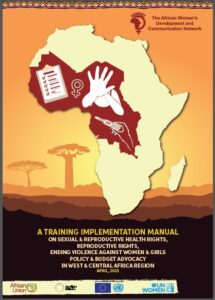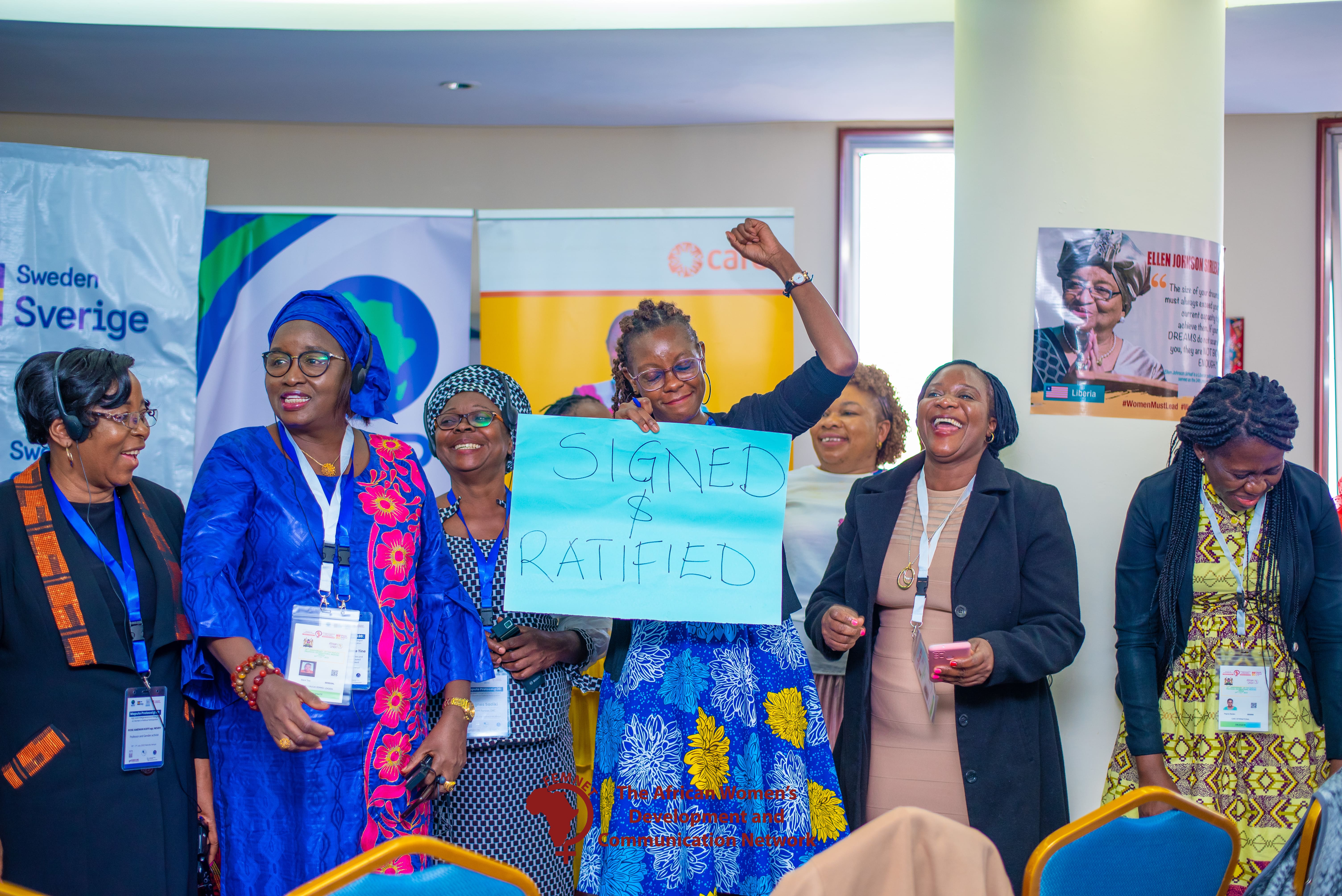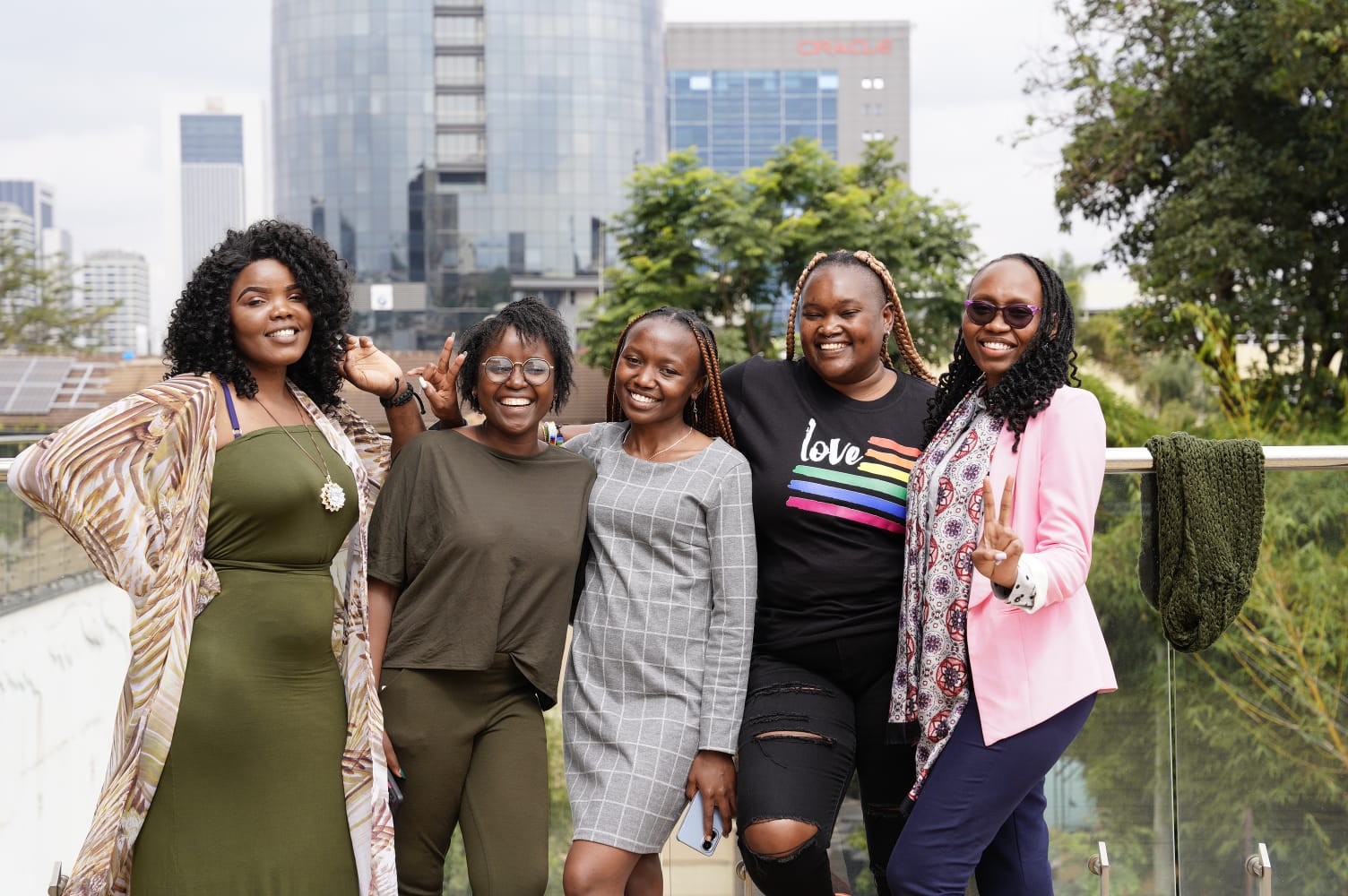
Maputo at 20: A Training Manual on SRHR, EVAWG, Policy, and Budget Advocacy in West and Central Africa Region
The West and Central African regions face numerous challenges regarding sexual and reproductive health and rights (SRHR) as well as violence against women and girls (VAWG). According to a report by the United Nations Population Fund (UNFPA), the region has some of the lowest contraceptive prevalence rates in the world, with only 18 percent of married or in-union women using modern contraception in 2020. Worse still, the region has the highest levels of unmet need for family planning, which is estimated at 24 percent for all women and 35 percent for adolescents aged 15-19. These challenges are further compounded by the region’s high levels of maternal mortality, which continue to be among the highest in the world, at an estimated 533 maternal deaths per 100,000 live births.
Furthermore, violence Against Women and Girls (VAWG) remains extremely high in West and Central Africa. The types of violence include intimate Partner Violence, sexual violence, especially conflict related. Additionally, the regions are some of the world’s hotspots of harmful practices. Whereas FGM/E is generally more prevalent in West Africa (45% over 29% of women and girls), and child marriage in Central Africa (41% over 35%), statistics paint a harrowing picture for most countries. In Niger, 76% of women and girls were married before turning 18 years old, followed by Cameroon (61%), CAR and Chad (60,6%). In 6 out of 24 countries of the region, more than 50% of the women were married before their eighteenth birthday. Similarly, FGM/E is most widely practiced in Guinea (Conakry), were 94,5% of women and girls have undergone cutting and or excision, followed by Mali (88,6% and Sierra Leone (86%). In 7 out of 24 countries more than half of the women’s population have undergone FGM/E.
Restrictive laws, policies, and regulations that impede access to SRHR services contribute to these health disparities. For instance, laws that require spousal or parental consent for contraceptive use, as well as policies that limit the provision of contraceptive methods to medical doctors and nurses, act as barriers to accessing family planning services. In some countries, cultural and religious beliefs also play a significant role in limiting access to SRHR services. To address these challenges, sustainable improvements to SRHR require the removal of restrictions and addressing systemic political, economic, cultural, and social barriers that prevent women, men, and young people from accessing services. This includes legal and policy reforms anchored on human rights, comprehensive sexuality education, community engagement, and the provision of affordable, accessible and quality SRHR and RR services.

This manual is therefore designed for feminists, SRHR activists, researchers and civil society organizations including but not limited to Women rights organizations (National level and grassroots) and International non-governmental organization with a comprehensive understanding of the SRHR, RR, and EVAWG policy and budget advocacy landscape in West and Central Africa and equip them with the necessary knowledge and skills to effectively advocate for change and or action in their respective contexts. It has six modules that will cover different aspects of SRHR, RR, and EVAWG advocacy, as well as the legal and policy frameworks, country-level action plans, and the role of men and boys.
Download SRHR Training Manual_Engish version
Download SRHR Training Manual_French_version
Related Tags
Related Posts
Maputo Protocol: Advancing African Women Voices in Political Spaces
Africa is far from achieving the 50% women’s representation in politics, unfortunately, the current political climate seems to
Learn MoreAfrican Women Demand for Inclusion and Diversity in the Implementation of Maputo Protocol
The Protocol to the African Charter on Human and Peoples’ Rights on the Rights of Women in Africa,
Learn More

